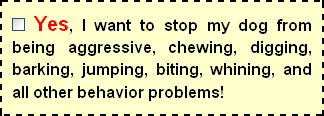
Play time should be a fun opportunity to train your Boxer appropriate behavior, and an opportunity to increase your dog's level of trust and respect for you as a leader.
Boxers are extremely playful, strong willed, independent thinkers, and unchecked dominance allowed during inappropriate play can make control and socialization difficult.
Play helps puppies develop important skills (such as hunting and fighting techniques) through practice, and it also affects their social development. Play between puppies is often rough and uncontrolled, and at times escalates to competitive aggression. Litter mates pull on each others tails and paws, bite ears, chase and pounce on one another, wrestle, bark and growl. All the while, they are learning how powerful they are, and where they rank in comparison to other members of their pack. By eight weeks old, when puppies are commonly separated from their siblings and introduced to their new homes, they already have an understanding of pack dynamics and ideas about how to elevate their social standing.
Your main goal in training appropriate play should be control of aggressive behavior and proper channeling of your Boxer's energy and intelligence. Never use play to reinforce your authority through hard-handed domination in competitive games! Instead, strive to keep your Boxer's attention focused on you as a leader and instigator of fun games, and a source of rewards for appropriate play behavior.
Avoid games that resemble boxing. Never encourage or allow your Boxer to play with hands, feet, or clothing, no matter how young your puppy might be or how harmless this may seem. Do not encourage your Boxer to jump on or at you, and avoid chasing and wrestling games. All of these arouse your Boxer's natural, aggressive instincts, and invite it to threaten your authority.
Boxers are comedians, and with their owners encouragement, they learn to discover and invent games themselves. Rules established during appropriate play training encourage your Boxer to use its intelligence and natural curiosity to invent fun, safe, stimulating games you both can enjoy. Controlled play should be goal oriented and allow your Boxer plenty of opportunities to earn your praise. Teaching your Boxer to fetch, playing hide and seek with toys, and practicing tricks are all examples of constructive, appropriate play. Avoid teasing your Boxer, as it will likely become frustrated very quickly and turn its attention away from you. Remember to offer treats and praise whenever your Boxer plays appropriately, even if this involves nothing more than bouncing a ball by itself or running after a toy you have thrown.



No comments:
Post a Comment